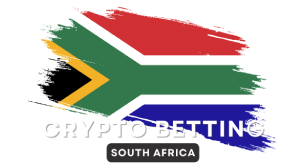South Africa is quickly catching up with the latest digital asset trend – non-fungible tokens (NFTs). But how do you navigate the world of NFT trading and ensure you make profitable trades? This article provides tips and strategies for buying and selling NFTs in South Africa.

Non-fungible tokens (NFTs) are unique digital assets that are indivisible and cannot be exchanged on a one-to-one basis like cryptocurrencies. These tokens are built on blockchain technology, which provides a decentralized and transparent ledger to verify ownership and authenticity. NFTs can represent a wide range of digital or physical items, including artwork, collectibles, virtual real estate, and even digital sneakers – yes, you read that right, digital sneakers!
Each NFT has a unique identifier, making it distinct from any other token. This uniqueness allows for the creation of digital scarcity, which can drive up the value of these assets. When an NFT is bought or sold, the transaction is recorded on the blockchain, ensuring that ownership is securely tracked and easily verifiable. This transparency and immutability make NFTs an attractive option for collectors and investors who are always on the lookout for the next big thing.
South Africa has witnessed a surge in interest and investment in NFTs, with local artists, entrepreneurs, and collectors exploring the potential of this burgeoning market. Several factors have contributed to the growth of the NFT market in South Africa, including increased internet penetration, a growing number of tech-savvy consumers, and rising awareness of blockchain technology.
In recent years, South African artists have started to embrace NFTs as a means to monetize their work and reach a global audience. This has resulted in a variety of digital art pieces, collectibles, and virtual goods being created and traded on NFT marketplaces. Furthermore, the country’s strong art scene, coupled with a growing interest in digital assets, has fueled the adoption of NFTs by South African collectors and investors – it’s like a perfect storm for NFT enthusiasts!
There are several reasons why NFTs have become popular in South Africa’s digital asset space:
In recent years, numerous NFT trading platforms have emerged in South Africa, catering to the growing interest in digital assets. Some of the most popular platforms include:
When selecting an NFT marketplace, South African users should consider several factors to ensure a seamless and secure trading experience:
Various fees and costs are associated with NFT trading on South African platforms, and users should be aware of these to make the most of their investments:
Understanding the fees and costs associated with NFT trading in South Africa is crucial for developing a successful investment strategy and maximizing returns on digital assets. So, happy trading and may the NFT force be with you!

To master the art of NFT trading, begin by evaluating the value and potential of various NFTs on the market. Dive deep into researching the creators, underlying assets, and the history of each NFT. Analyze the popularity and demand for similar NFTs to gauge their potential worth.
Aspects that can boost an NFT’s value include rarity, utility, provenance, and the reputation of the creator. For instance, an NFT crafted by a renowned artist or linked to a popular brand may hold more value than one created by an unknown individual. Moreover, an NFT that grants access to exclusive content or experiences may be more valuable due to its practicality.
As with any investment, diversifying your NFT portfolio is essential to minimize risk and optimize returns. Don’t put all your eggs in one basket by investing everything in a single NFT or category. Instead, distribute your investments across various types of NFTs, such as art, collectibles, virtual land, and gaming assets. This strategy ensures that if one category underperforms, your entire portfolio won’t take a massive hit.
Additionally, consider investing in both established and emerging artists or brands. While established creators may provide more stability, emerging talents can offer higher potential returns if their popularity grows. Balancing your portfolio with a mix of well-known and lesser-known NFTs can help maximize your gains while minimizing risk.
The NFT market is ever-changing, and staying informed about trends and market movements is crucial for developing a successful trading strategy. Follow industry news and updates, engage with the NFT community, and monitor social media platforms to stay ahead of the curve.
Here’s how to stay informed without feeling like you’re drinking from a firehose:
By staying informed and up-to-date with the latest trends and market movements, you can make informed decisions and adjust your trading strategy accordingly. This will help you capitalize on emerging opportunities and minimize the impact of adverse market conditions.

Trading NFTs can be an exhilarating and potentially rewarding experience, but it’s crucial to be aware of the risks involved. The NFT market is known for its volatility, with prices sometimes fluctuating drastically within a short timeframe. To minimize this risk, it’s essential to thoroughly research and assess an NFT’s potential value based on factors such as its uniqueness, creator’s reputation, and historical sales data.
Another danger to watch out for is the potential for scams and fraudulent transactions. Make sure you’re dealing with a reputable platform and seller before making any purchases. And remember, if a deal seems too good to be true, it probably is!
That said, the potential rewards of NFT trading can be significant, especially if you have a keen eye for value and timing. Some NFTs have sold for millions of dollars, so the sky’s the limit if you play your cards right.
When it comes to negotiating and pricing NFTs, it can be a bit of a wild ride, given the unique nature of these digital assets. Here are some strategies to help you navigate this rollercoaster:
To ensure a secure NFT trading experience, it’s essential to take the following precautions:
By following these tips, you’ll be well on your way to success in buying and selling NFTs in South Africa, while minimizing risks and protecting your precious digital assets. Happy trading!

Despite the rapid growth of the NFT market in South Africa, the regulatory environment is still playing catch-up. As it stands, there are no specific regulations that directly address NFT trading in the country. However, traders and creators should be aware of existing laws and regulations, such as the Financial Intelligence Centre Act (FICA), the Electronic Communications and Transactions Act (ECTA), and the Consumer Protection Act (CPA), which could indirectly affect NFT trading activities.
It’s also worth noting that the South African Reserve Bank (SARB) has issued guidelines on digital assets, which may apply to NFTs as well. Although the SARB states that digital assets are not recognized as legal tender and are not considered a financial product under the Financial Advisory and Intermediary Services Act (FAIS Act), it’s better to be safe than sorry. So, keep an eye out for any future regulatory updates.
While there are no NFT-specific tax laws in South Africa, general tax principles still apply. So, if you’re dabbling in the world of NFTs, it’s essential to be aware of the tax implications to avoid any nasty surprises:
As the NFT craze sweeps across South Africa, it’s vital for creators and traders to be aware of legal considerations that may impact their activities:
So, while the regulatory environment for NFT trading in South Africa is still finding its feet, it’s crucial for traders and creators to stay informed about the existing laws and potential tax implications. Plus, understanding intellectual property rights, consumer protection laws, and the legal aspects of smart contracts will help ensure a successful and legally compliant NFT trading experience. And let’s face it, nobody wants to be on the wrong side of the law!

